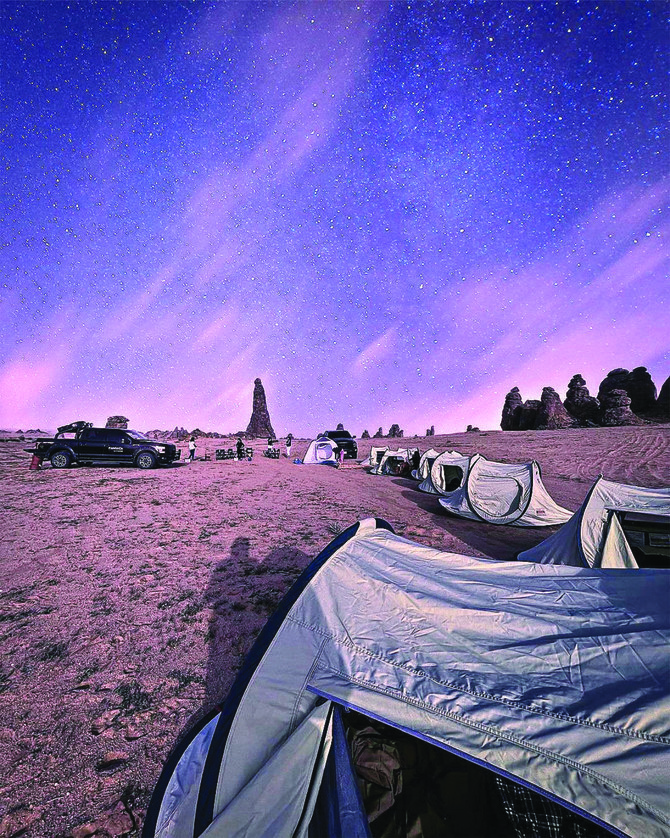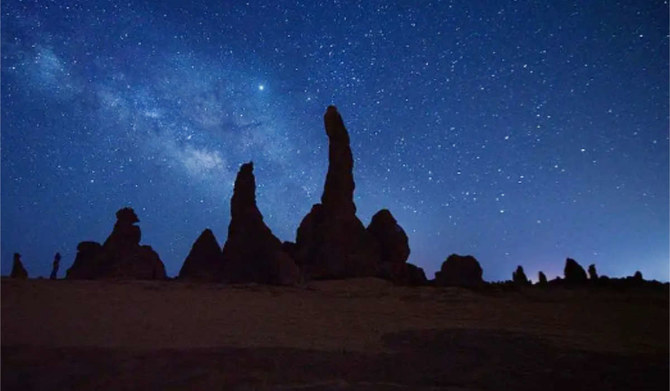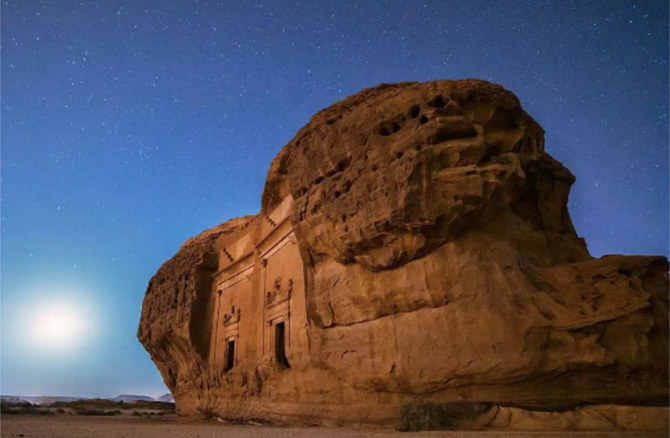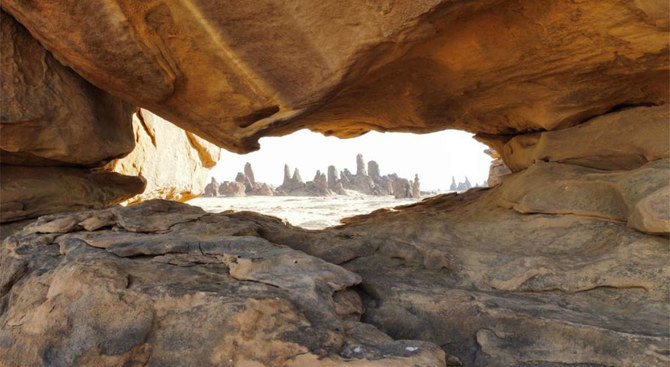ALULA: The barren expanse of AlUla, known for its historical monuments and enchanting desert landscapes, has long captured the imaginations of those who traverse its ancient grounds.
An exploratory study is unveiling a fascinating link between the historical sites of AlUla and the cosmos, demonstrating an old connection between civilizations and the stars that continues to influence the region today.
HIGHLIGHTS
• A team of archaeoastronomy specialists aim to piece together a comprehensive picture of how AlUla’s sky influenced ancient societies’ worldview.
• In Gharameel, around 6,000 twinkling stars adorn the sky, an awe-inspiring sight only possible when light pollution decreases.
Situated in the northwest of the Kingdom, AlUla’s archaeological sites offer a unique window into the significance of astronomy in the region’s history. Stories shared by guides, as well as evidence from ancient civilizations, reveal how the vast desert’s starry canopy played a pivotal role in guiding travelers and commercial caravans, helping them navigate the vast expanses over the centuries.
Majed Al-Zahoufi, a passionate guide and astronomy enthusiast, has cultivated a deep connection with the desert. His journey into the realm of stars began almost a decade ago through avid reading and personal observations.
Al-Zahoufi told Arab News that his exploration of these subjects is firmly rooted in reality and not at all uncommon. Drawing from his extensive knowledge of Arab history, civilizations, and astronomy, he pointed out a consistent pattern: “The various civilizations that thrived in AlUla, such as the Dadans, Lihyans, Nabataeans, and Minaeans, all strategically controlled significant global trade routes.
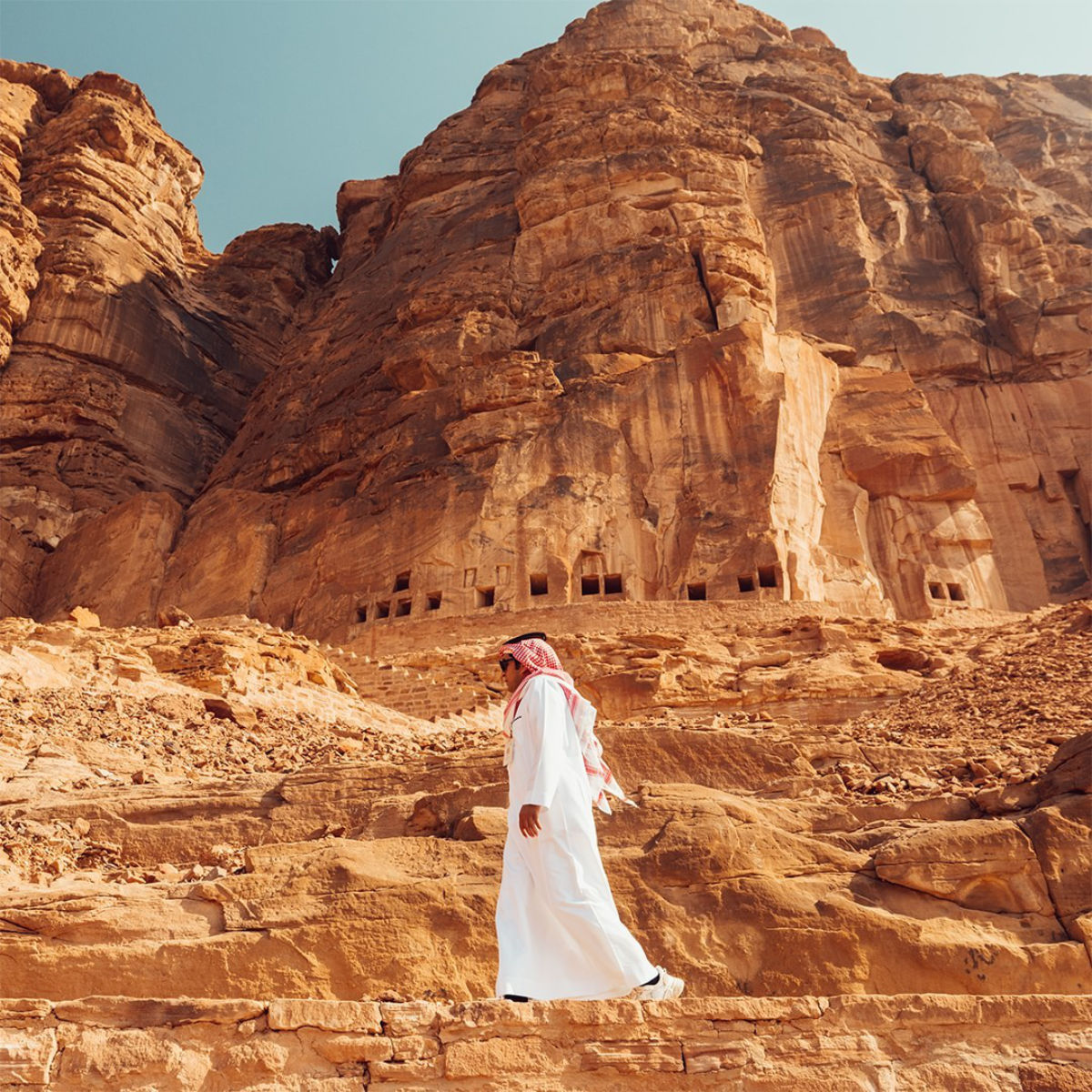
The Gharameel rock formations are composed of sedimentary layers shaped by ancient marine and riverine environments. (Supplied)
“Among these routes were the renowned incense routes utilized by traders from the southern Omani region to traverse towards the northern parts of the Arabian Peninsula. This crossroads of trade facilitated interactions between diverse cultures, including the Greeks, Babylonians, and Assyrians.”
These ancient civilizations, positioned at the crossroads of trade, communicated with diverse cultures, many of which were heavily influenced by astronomy. Some even worshipped the stars.
Throughout history, cultures worldwide have recognized the profound interplay between the Earth and the sky. Celestial bodies, like luminaries, held the key to navigation, determining seasons and guiding various cultural practices. This connection between civilizations and the cosmos remains evident in the rich tapestry of AlUla’s past.
The various civilizations that thrived in AlUla, such as the Dadans, Lihyans, Nabataeans, and Minaeans, all strategically controlled significant global trade routes.
Majed Al-Zahoufi, AlUla guide
Al-Zahoufi said: “In my personal observations and readings, I see a close relationship between the Nabataeans, their artifacts, and the sky. Numerous scientific studies validate this bond, showing how the Nabataeans believed in the influence of constellations.”
This ancient connection between civilizations and the cosmos has attracted the attention of modern experts. In May, a team of archaeoastronomy specialists embarked on a field study within the AlUla Oasis.
Their objective is to unveil the reasons behind ancient civilizations' selection of specific sites, decode the symbolism of tomb inscriptions, and decipher the cultures’ perception of the sky. By analyzing architectural details, decorative patterns, and calendar indications, researchers aim to piece together a comprehensive picture of how the sky influenced these societies’ worldview.
Juan Antonio Belmonte, an astrophysicist from Spain’s Institute of Astrophysics, found an intimate correlation between the Earth and the sky through preliminary data collected from a hundred Nabataean tombs. In the months ahead, analytical and statistical studies will further elucidate the connection between the ancient Arab kingdoms and the universe.
Among AlUla’s treasures is the Gharameel area, a haven for stargazing — the further away one goes from city lights, the more stars become visible in the night sky, Al-Zahoufi explained. In Gharameel, around 6,000 twinkling stars adorn the sky, an awe-inspiring sight only possible when light pollution decreases.
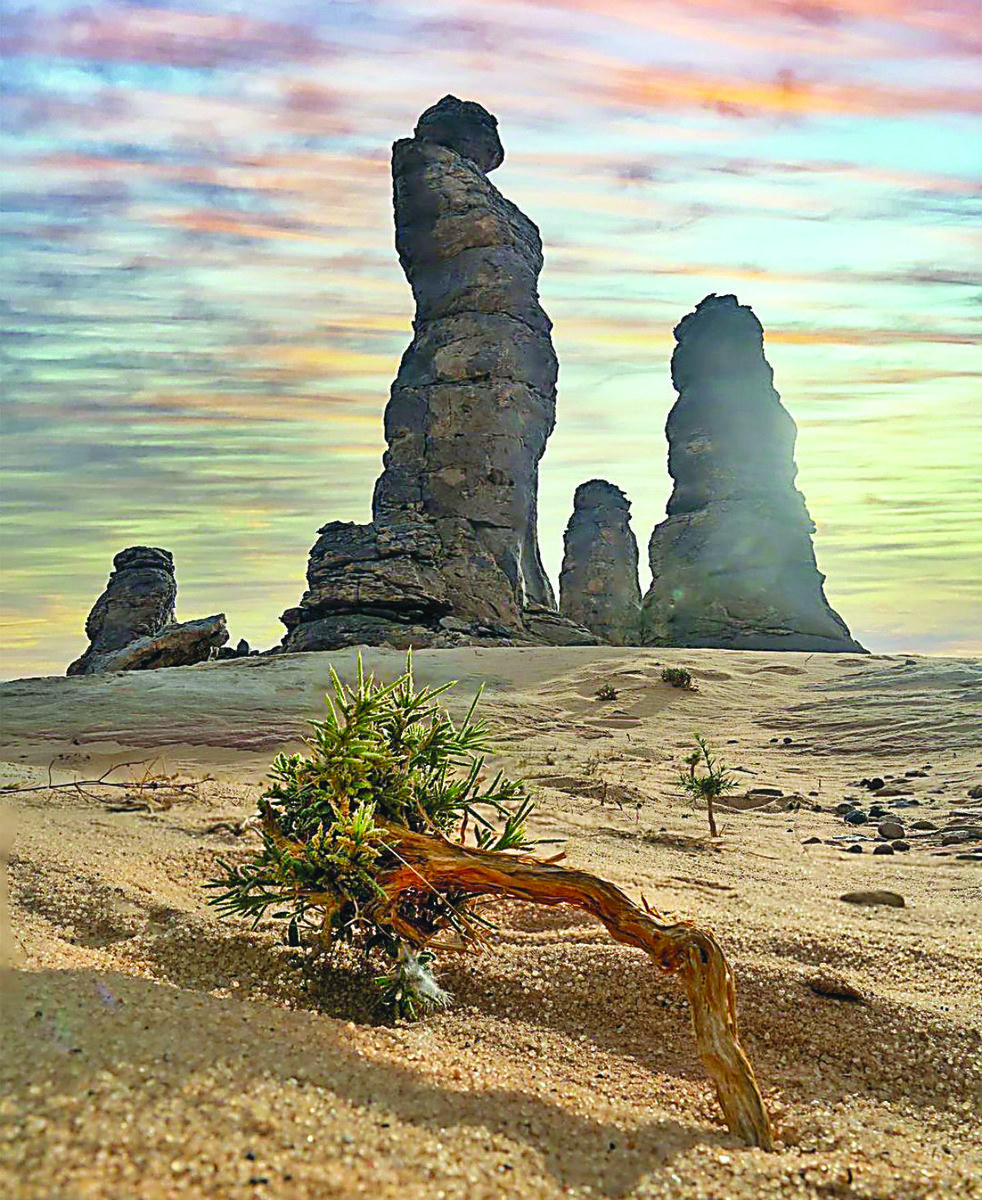
The Gharameel rock formations are composed of sedimentary layers shaped by ancient marine and riverine environments. (Supplied)
To safeguard this remarkable stargazing destination, the Royal Commission for AlUla is actively working to minimize light emissions from the city. Visitors can also take midnight excursions to the secluded Gharameel area to immerse themselves in constellations under the untouched AlUla night sky.
The enchantment of AlUla extends to its geological marvels as well. Abdullah Al-Shammari, a Saudi geologist, explained that the unique Gharameel rock formations are composed of sedimentary layers shaped by ancient marine and riverine environments.
“The sedimentation began in this formation at the end of the Cambrian era and the beginning of the Ordovician era (the Paleozoic era) that falls between 470 to 500 million years ago,” Al-Shammari said.
He also highlighted that these geological wonders mirror similar formations across the world, from the Ennedi Plateau in Chad to the Saudi Arabian desert.
The stars, woven into the fabric of Arab culture, serve as poetic inspiration and cultural markers, encapsulating the enduring relationship between man and the cosmos. In the enchanting tapestry of AlUla’s history, archaeology and astronomy dance together, revealing a story that transcends time.
Al-Zahoufi said: “Astronomy isn’t merely a scientific endeavor; it holds a wondrous privilege of unraveling the sky’s mysteries, guiding agricultural practices, and even influencing the arts.
“Arabs also embodied astronomy in Arabic poetry as they praise their kings, flirt with their beloved through the stars because the stars are an authentic culture for the Arabs and a means of entertainment.”


